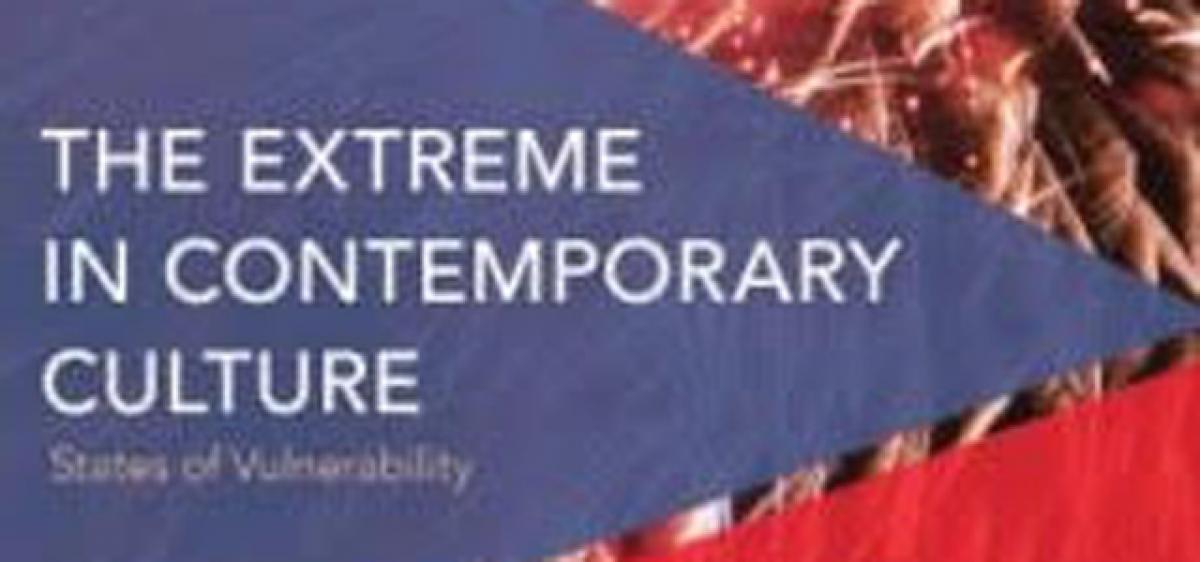Live
- Tamil Nadu, Manipur enter final rounds
- Hyderabad fastest growing city among 6 metros
- Anupama enters 2nd round; Sumeet-Sikki also win
- Stage set for Mahayuti-MVA 'Maha' yudh today
- India beat Japan 2-0, to face China in final
- Space X launches ISRO's communication satellite
- Sensex, Nifty rebound on value buying
- Eatala dares Revanth for debate on Cong 6Gs
- Modi strengthens global ties at Rio de Janeiro
- 55% share price fall costs Ola Electric investors Rs. 38K cr
Just In

Prof. Pramod K Nayar, Department of English, School of Humanities, University of Hyderabad (UoH) has published a book titled ‘The Extreme in Contemporary Culture’ through Rowman and Littlefield, 2017.
Prof. Pramod K Nayar, Department of English, School of Humanities, University of Hyderabad (UoH) has published a book titled ‘The Extreme in Contemporary Culture’ through Rowman and Littlefield, 2017.
This book is a study of vulnerability as a dominant cultural discourse today, especially as it manifests in ‘extreme cultures’. These are cultural practices and representations of humans in risky, painful or life-threatening conditions where the limits of their humanity are tested, and producing heightened sensations of pain and pleasure.
Extreme cultures in this book signal the social ontology of humans where, in specific conditions, vulnerability becomes helplessness. We see in these cultures the exploitation of the body’s immanent vulnerability in involuntary conditions of torture or deprivation, the encounter with extreme situations where the body is rendered incapacitated from performing routine functions due to structural conditions or in a voluntary embracing of risk in sporting events wherein the body pits itself against enormous forces and conditions.
‘The Extreme in Contemporary Culture’ studies vulnerability across various conditions: torture, disease, accident. It studies spaces of vulnerability and helplessness, the aesthetics and representations of vulnerability, the extreme in the everyday and, finally, the witnessing of (in) human extremes. Extreme cultures suggest shared precarity as a foundational condition of humanity.
A witness culture emerges through the cultural discourse of vulnerability, the representations of the victim and/or survivor, and the accounts of witnesses. They offer, in short, an entire new way of speaking about and classifying the human.
Prof. Nayar teaches courses in Literary Theory, the English Romantics, Postcolonial Literature's and Cultural Studies. His interests lie in English colonial writings on India, Human Rights narratives and Cultural Studies, with a consistent publication record in these areas.

© 2024 Hyderabad Media House Limited/The Hans India. All rights reserved. Powered by hocalwire.com







